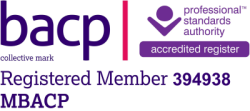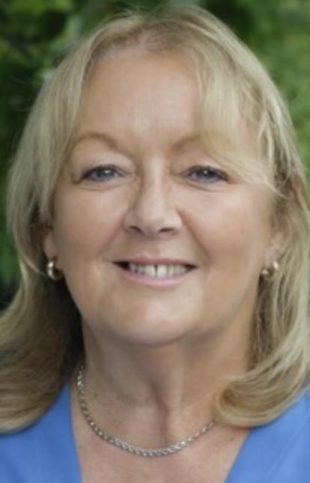Welcome to Sue Clayton Counselling
A confidential space online only via zoom, teams and other platforms to suit your individual preference.

About Me
I am Sue a qualified experienced Integrative Counsellor/Psychotherapist and a registered member for the BACP (British Association for Counselling and Psychotherapy)
At Sue Clayton counselling and Psychotherapy, my mission is to welcome you online to a secure and safe space. I want you to feel supported and comfortable sharing your inner thoughts, feelings and emotions. I aim to explore and assist you in identifying and addressing these personal challenges you face. We will explore together whether these challenges are from past experiences, struggles you are facing in the present time or anxiety over the future.
As an integrative counsellor I combine different therapeutic approaches to tailor treatment to your individual needs. I aim to treat the whole person – mind, body and emotions. By using these different approaches, I can find the best practice to help you heal in the most effective way for you. Please see the FAQ’s for some of the approaches I use.
I work with people from all walks of life and backgrounds, coming to me with a diverse range of problems. As a fully-qualified counsellor I am a member of the British Association of Counselling and Psychotherapy, and abide by their code of ethics.



Counselling and therapy in a safe, comfortable and private setting
I have been volunteering in a Hospice for the past two years and gained further training and experience counselling people going through loss and bereavement, including complicated grief. I would like to further help anyone going through this most difficult time of their lives. I will offer you a safe space to talk about your feelings around the loss of your loved ones. I have also worked with a low cost agency helping people who would otherwise find it difficult to access counselling. I therefore offer some sessions at a reduced rate depending on your financial situation. There is sometimes a waiting list for these sessions.

I want to help anyone who is struggling with negative emotions and thoughts or going through a difficult period in their life. I will treat you with respect, listen to you and give you a safe, non-judgemental space for you to share what is going on for you.

I believe the counselling relationship is the most important aspect of counselling. Your feelings, thoughts and experiences are precious. It is important that you find the right counsellor for you.

When you are experiencing difficulties, you need your emotions to be acknowledged and understood. Otherwise, these can lead to unwanted and unresolved issues which you may carry on through to other aspects of your life.
What issues can I help with?
People come to me for help with a wide range of problems. Here are a few of the more common difficulties that can be supported through counselling:
Feelings of stress or anxiety
Panic attacks
Relationship problems
Grief, loss or bereavement
Problems with addiction
Trauma and post-traumatic stress
Abuse
Depression
Problems with confidence or self-esteem
Anger management
Issues relating to sexuality
Difficulties at work or in retirement
Problems with family or school life

My location - Online Only
Based in South London, I offer online counselling sessions via Zoom, Microsoft Teams and other secure platforms, reaching clients across the UK including the surrounding areas of Wandsworth, Putney, Roehampton, Barnes, Sheen and Richmond.

Fees & availability
Sessions last 50 minutes and are online or by telephone and are usually on a weekly basis.
Sessions are £60 and I also offer concessions to students and people on a low income.
Get in touch
Feel free to contact me if you have any questions about how counselling works, or to arrange an initial free 20 minute appointment. This enables us to discuss the reasons you are thinking of coming to counselling, whether it could be helpful for you and whether I am the right therapist to help.
You can also call me on 07915 094515 if you would prefer to leave a message or speak to me first. I am happy to discuss any queries or questions you may have prior to arranging an initial appointment.
Some frequently asked questions
The length of a session is 50 minutes. This is usually once a week at the same time. However, I offer flexibility and aim to meet your individual needs.
How long counselling lasts is down to you as an individual. I offer short and long term counselling and this all depends on the complexities of what you being to counselling and your individual needs.
There are a number of different approaches used by professional Counsellers/Psychotherapists. As I am an integrative counseller, I use different approaches depending on what you bring to the sessions. Some of the approaches I use are as below.
• Person Centred Counselling
I create a safe, non-judgemental environment. We can then explore your feelings and beliefs and find solutions. The goal is to help you gain self-acceptance, increase your self-worth. Also help you achieve your highest potential.
• Psychodynamic Therapy
I will help you understand how your unconscious influences your thoughts, feelings and behaviours. We will explore your past, including your childhood experiences focusing on unconscious thoughts and feelings.
• Cognitive Behavioural Therapy (CBT)
CBT is based on the idea that thoughts, feelings and behaviours are linked and influence each other. I will help you identify and challenge unhelpful thoughts and learn to think in a less negative way. I will help you learn to break down problems and approach in a different way. Helping you improve your life by learning practical self help strategies.
• Attachment Theory
Exploring your attachment style which may differ in your different relationships. This will depend on the bonds formed with your primary caregivers, most typically your parents. There are different types of attachment styles which include:-
• Secure Attachment Style
A child feels safe and feels their caregiver will meet their needs and respond positively leading to a healthy emotional development resulting in their ability to face the world from a secure place.
• Insecure Attachment
- Anxious Attachment
A child is anxious due to their caregiver's inconsistency in responding to their needs.
- Avoidant Attachment
A child becomes emotionally distant because their caregiver is often unresponsive and consistently rejects the child.
-Disorganised Attachement
This often happens when a child is is abused or neglected and they experience fear or confusion which leads to inconsistant behaviour.
These early attachments you may have experienced as a child can influence throughout your life and how you form relationships. These can include friendships, romantic relationships and also work relationships.
Many therapists tend to view Counselling as ‘short-term’ work; when someone has a problem that can be looked at and discussed in a clearly-resolvable way. This work often requires undertaking sessions for a certain number of weeks, to explore, discover and clarify a way forward. Therapy is a word used more to describe ‘long-term’ work; discussion that tends towards substantial issues and things that might be life-changing on a deeper level.
Whether counselling or therapy work best as a short- or long-term option depends on the client though, and the difficulties they are facing. In some cases counselling can prove helpful as a continuing, longer-term option, or therapy can help resolve an issue in just a few sessions.
There’s no fixed or ideal length of time for the counselling process; it varies from person to person and will often depend on the depth of the issues they are facing. While I can work on an open-ended basis with clients, I find it is helpful for us to both agree before we start on undertaking a certian nunebr of sessions and reviewing where we are at once we reach that point. You are able to decide how long your therapy willl last, and in return my aim is to make sure therapy continues for only as long as it is of benefit to you.
This depends on what your needs are. Some people find that after only a very few sessions they have some clarity and focus and are ready to end the therapy. Other people value the ongoing support and relationship with me and will continue to come for weeks, months, or even years. There is no 'one-size-fits-all' when it comes to therapy.
My aim is to offer you a first appointment, known as an assessment session within 1-2 weeks, this is once we receive your completed client pack back. However, waiting times will vary according to pressure on our resources, your own availability and the service you seek.
An appointment to our short term counselling, which is not subsidised, can be offered within about one week.
Confidentiality is one of the main ways in which therapy differs from many other forms of helping - for example, talking to friends or family can rarely offer the same degree of confidentiality as talking to a counsellor. Because of this confidentiality, you will find that - as you get used to coming for therapy - you are freer to talk about whatever you wish to.
No therapist can offer 100% confidentiality: there are some situations where the law requires disclosure of risk (e.g. certain child protection issues) and in common with most other therapists, there are some situations where I may not be able to keep total confidentiality. In particular, if someone tells me that they are thinking of harming themselves in a way that I believe puts them at serious risk, or if someone tells me that they are doing something that could put others at risk, I may not be able to keep such information confidential. However, breaking confidentiality is rare, and only happens after talking to the person concerned.
When you come for counselling it's important that you feel free to talk about whatever is important to you. Sometimes, you may not be clear what those issues are. Having a friend or family member with you is not usually helpful because they may have their own agenda for you. Even if this is just that they want to be supportive, or want you to 'get better', this agenda can prevent us opening issues up. When you come for therapy, you may need to explore thoughts or behaviours about which you feel ashamed or embarrassed and you may censor yourself so as not to hurt someone, or you may find that what they want you to talk about is not really what you need to discuss.
Sometimes, family/friends can even be part of an underlying issue which needs to be aired and discussed. Usually, people who ask this question are nervous about coming for a session alone, or they are anxious for the person who is thinking about arranging sessions. This anxiety is quite normal, and you will not be forced to talk about anything you feel uncomfortable about - but you do need to be able to talk about whatever is important. For this reason, I do not see clients accompanied by friends or family
© Sue Clayton
powered by WebHealer